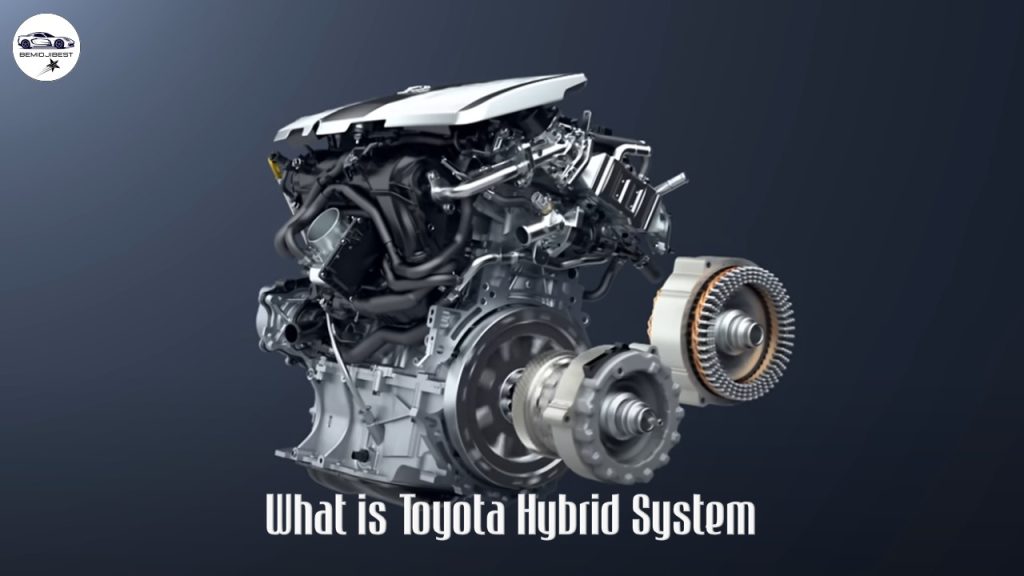
The Toyota Hybrid System (THS) is one of the most advanced and recognized hybrid technologies in the automotive world. Developed to combine the efficiency of electric motors with the power and reliability of gasoline engines, this system redefined how modern vehicles can achieve performance, fuel savings, and reduced emissions simultaneously. In this article, we will take a deep dive into how Toyota’s hybrid technology works, its components, advantages, and future innovations.
Understanding The Toyota Hybrid System
The Toyota Hybrid System integrates a gasoline engine with one or more electric motors to optimize performance. Instead of relying solely on fossil fuels, THS intelligently manages energy between the internal combustion engine (ICE) and the battery-powered electric motor. This combination allows the vehicle to run efficiently in different driving conditions.
Unlike conventional cars, which depend entirely on a gasoline engine, THS vehicles can:
- Run exclusively on electric power at low speeds.
- Switch seamlessly between the engine and electric motor.
- Use both systems together for extra power when required.
This balance ensures reduced fuel consumption, smoother acceleration, and lower emissions.
Key Components Of The Toyota Hybrid System
The THS works through a combination of several high-tech components, each playing a vital role.
-
Internal Combustion Engine (ICE)
Toyota hybrids typically use a highly efficient Atkinson cycle gasoline engine. Unlike traditional Otto cycle engines, the Atkinson cycle offers better fuel efficiency by reducing energy loss during combustion.
-
Electric Motor/Generator
The electric motor assists the engine in delivering power and can drive the car on its own at low speeds. It also functions as a generator to recharge the battery during deceleration and braking.
-
Hybrid Battery Pack
A high-voltage battery stores energy for the electric motor. This battery is automatically charged during driving through regenerative braking and excess engine power, eliminating the need for external charging.
-
Power Control Unit (PCU)
The PCU is the brain of the hybrid system. It controls the flow of electricity between the engine, motor, and battery, ensuring smooth transitions between different driving modes.
Unlike traditional gear systems, Toyota hybrids use an eCVT (electronically controlled continuously variable transmission). This ensures optimal efficiency by allowing the engine and motor to work together seamlessly without fixed gear ratios.
How The Toyota Hybrid System Works In Driving Modes
The brilliance of the THS lies in its adaptive driving modes, which adjust automatically depending on driving conditions.
-
EV Mode (Electric Vehicle Mode)
- Used during low-speed driving, such as in traffic or parking.
- Runs solely on battery power.
- Produces zero tailpipe emissions.
-
Hybrid Mode
- The system intelligently switches between the engine and electric motor.
- Perfect for city driving and stop-and-go traffic.
- Provides excellent fuel economy.
-
Power Mode
- Combines the power of both the engine and motor.
- Ideal for overtaking or highway driving.
- Offers maximum performance while still being fuel efficient.
Advantages Of The Toyota Hybrid System
Toyota’s hybrid technology is globally recognized because it offers several key benefits over conventional vehicles.
-
Fuel Efficiency
The combination of the Atkinson cycle engine and electric motor results in impressive fuel savings, especially in urban environments.
-
Lower Emissions
THS vehicles emit fewer greenhouse gases, aligning with global environmental regulations. Toyota hybrids play a crucial role in reducing carbon footprints worldwide.
-
Smooth and Quiet Drive
Thanks to the electric motor, Toyota hybrids provide silent starts and smooth transitions, making the driving experience more comfortable.
-
Durability and Reliability
Toyota has decades of experience in hybrid development. Their hybrid systems are known for long-lasting battery performance and low maintenance costs.
-
Regenerative Braking
This technology allows the vehicle to recover energy during braking, which is stored back into the battery. It not only increases efficiency but also reduces brake wear.
Toyota Hybrid System Generations
Since its introduction, the THS has evolved through multiple generations.
First Generation (1997 – Prius Launch)
- Introduced with the first Prius.
- Focused on fuel efficiency and eco-friendliness.
Second Generation
- Improved battery technology and lighter components.
- Enhanced power output with better acceleration.
Third Generation
- Larger and more powerful electric motors.
- Increased overall system efficiency.
Fourth Generation (Current Models)
- Smaller, lighter, and more powerful components.
- Enhanced fuel efficiency and reduced emissions.
- Advanced lithium-ion batteries in some models.
Toyota Hybrid Models Available Today
Toyota has expanded its hybrid lineup beyond the Prius to meet global demand. Some of the most popular models equipped with the THS include:
- Toyota Prius – The pioneer of hybrid technology.
- Toyota Corolla Hybrid – Blends practicality with eco-efficiency.
- Toyota Camry Hybrid – A balance of performance and luxury.
- Toyota RAV4 Hybrid – SUV comfort with excellent fuel economy.
- Toyota Highlander Hybrid – Family-friendly with hybrid efficiency.
- Toyota Yaris Hybrid – Compact and economical urban driving.
Future Of The Toyota Hybrid System
Toyota continues to innovate with its hybrid technology as part of its carbon-neutral strategy. Future developments will focus on:
- Solid-state batteries for longer range and faster charging.
- Improved integration with plug-in hybrid systems (PHEVs).
- Expansion of hybrid technology to commercial and heavy-duty vehicles.
- Enhanced connectivity and AI-driven energy management.
Toyota’s hybrid technology is not just about saving fuel—it’s about leading the transition toward a sustainable automotive future.
Conclusion
The Toyota Hybrid System is a groundbreaking innovation that has transformed the way we drive. By intelligently combining gasoline and electric power, it offers unmatched fuel efficiency, reliability, and environmental benefits. From the Prius to SUVs like the RAV4 and Highlander, Toyota hybrids continue to set the benchmark in the automotive industry.
As global demand for cleaner, more efficient cars grows, Toyota’s hybrid system will remain at the forefront, shaping the future of sustainable mobility.
Leave a Reply